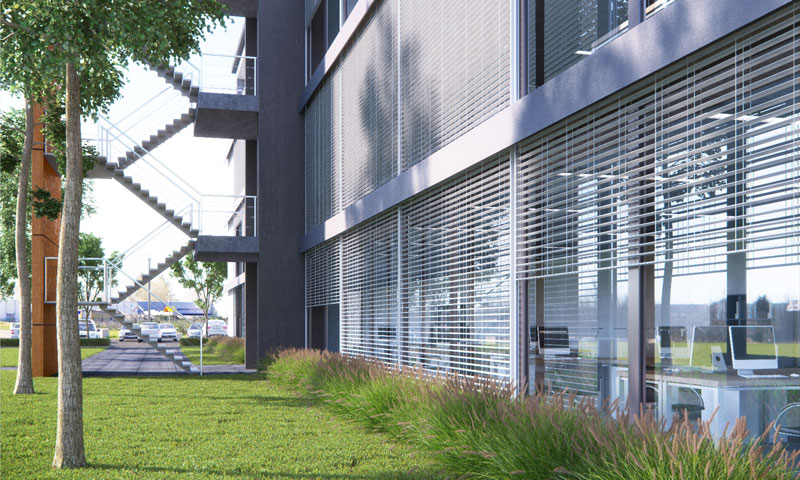Comfort & Cooling
The right room temperature makes a big difference to our well-being. Solar shading in front of the window ensures a pleasant room climate and helps to save up to 50% of energy used on cooling. When it is hot outside, the shading shields the indoors from unwanted heat rays. Often the installation of an air conditioner is redundant, which significantly reduces not only the construction costs but also the operating costs of real estate.

Effectiveness in Summer
During the day, the automatic solar shading prevents rooms heating up, 90% of the heat remains outside and the rooms remain pleasantly cool even without air conditioning and at night the cool fresh air is used for night cooling.
Effectiveness in Winter
Up to 16% of heating energy can be saved over the winter months. While the warmth of the sun radiates into rooms during the day, this solar energy serves to heat up the building free of charge. The solar shading can then be used in the evening as a thermal insulation system: This works by closing all of the blinds at the end of the day to minimize the extent to which the building cools down overnight.
Cooling without air conditioning - study by the Lucerne University of Applied Sciences and Arts HSLU
According to the study "ClimaBau- Planung angesichts des Klimawandels" [ClimateConstruction - Planning in the face of the climate crisis]" the Lucerne University of Applied Sciences and Arts HSLU in Switzerland, efficient cooling without air conditioning is possible. It is a combination of building fabric, domestic engineering in the form of solar shading and shading systems and residents taking the right course of action. Cooling without air conditioning is better for the environment, healthier and makes for a pleasant indoor climate. The researchers at the Lucerne University of Applied Sciences and Arts HSLU recommend easy-to-operate, automated and electronic solar shading and shading systems.
Solar shading system + Thermal comfort
- 20% energy saving using automatic sun protection systems (ESSO)
- Cutting the amount of electrical energy used in summer to cool rooms
- Using solar energy to save heating costs in winter


